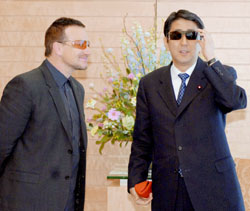The following story is from the June 15, 1852 edition of the New York Times, its second year of publication.
From St. Helene-Cruelty of the Japanese toward American Sailors.
By the bark Eureka, arrived from Canton, this morning, we have the following statement of cruel treatment by the Japanese toward shipwrecked American seamen, and the murder of one of the unfortunate men taken at St. Helena some months ago:
“MURPHY WELLS, an American citizen, born in the State of New-York, late carpenter on board the American whaling ship Lawrence, of Poughkeepsie, Capt. BAKER, states that the said vessel (Lawrence) was wrecked on the 28th of May, 1846, by running on a reef of rocks, in the dead of the night, about 300 miles off the coast of Japan, during very thick weather. All hands remained by the vessel till daylight, when three boats were manned, by the whole of the ship’s company, who took with them all of their clothing, &c., that could possibly be got at, as the vessel was fast going to pieces, the sea making a breach over her. They then made the best of their way for the Island of Japan. During the night the boats separated, and two of them have never been seen since.
“Our boat (WELLS’S) arrived in safety, after seven days’ passage. On the moment of arrival, the natives took possession of all of us, our boat and effects, and we were thrust into a prison cage, made similar to those in which wild beasts are kept for exhibition, where we were confined and half starved for eleven months and a half, after which we were transported to a Dutch settlement down the coast, where we were again put in prison by the Japanese for two months more.
“At the expiration of this confinement, we were brought before the chiefs and tried for daring to approach their land. We told them we were shipwrecked, which they would not listen to, and upon no terms would they grant us our liberation. They threatened to cut off our heads, because they thought we were English, whom they hate; but when we told them we were Americans, they said nothing more, except to ask us of what religion we were. Upon our telling them we worshiped GOD, and believed in JESUS CHRIST, they brought a cross bearing the image of our Saviour, and had we not trampled upon it at their request, they would have massacred us on the spot. We were then detained on shore, in prison, for a couple of days more, when they sent us board a Dutch ship, bound to Batavia, where we arrived in December, 1847-each of us doing the best we could for ourselves to get a passage home.
“While we were in Japan, in prison, one of our comrades, THOS. WILLIAMS, endeavored to make his escape, but was caught and taken back to prison in a dying state, owing to wounds inflicted on him with some deadly weapon; there was a gash over his forehead which bled profusely. The poor fellow lived about six hours. The natives brought a coffin, into which they compelled us to place the corpse, when they it took it away. What was done with it, we could never ascertain.
“The names of those saved from the wreck are GEO. HOWE, second mate; THOS. WILLIAM, seaman (since murdered); THOMAS WILLIAMS, seaman; PETER WILLIAMS, seaman; HENRY SPENCER, seaman; MURPHY WELLS, carpenter.
“We head of several English seamen being there in confinement similar to ourselves.
“It is anxiously hoped the American Government will not suffer this treatment, but more particularly so sanguinary and act towards hapless shipwrecked American seamen to pass without ample retribution.”
The sailors had their retribution. One year later, on July 8, 1853 Commodore Matthew Perry of the United States Navy landed in the port of Edo, forcing the Japanese Shogunate to enter into relations with the United States, and allow foreigners legal entry into the country.




 Japanese TV host Mino Monta was recently
Japanese TV host Mino Monta was recently 